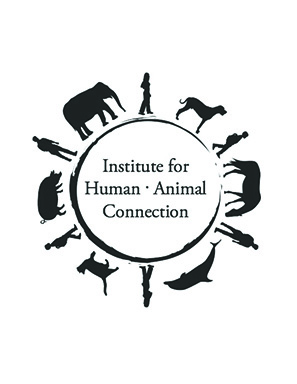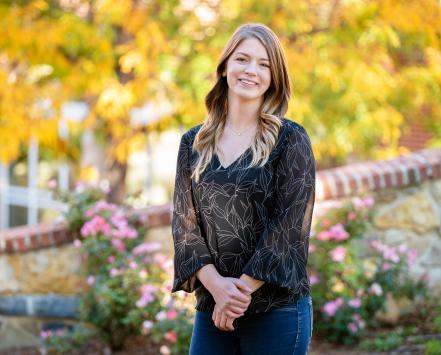Post-Master of Social Work Research Fellowship Program
Unique Opportunity at the Institute for Human-Animal Connection
The Institute for Human-Animal Connection’s Post-Master of Social Work Research Fellowship program provides individuals with robust training in social science research with a focus on the Human-Animal-Environment Interaction field. The Research Fellows are integral members of the IHAC Research team, with an emphasis on creating academic products that include funding proposals, peer-reviewed journal articles, conference abstracts, and other publications to formally communicate research findings and build the Fellow’s professional portfolio. After two years, the Research Fellow will be prepared for doctoral programs and/or research within academic, non-profit, or for-profit environments. This program has been generously funded by an anonymous donor through a grant to the University of Denver’s Graduate School of Social Work.
Research Fellows at the Institute for Human-Animal Connection come from a variety of different backgrounds. Learn more about our current research fellows below!
Tess Hupe, MSW, Research Fellow 2020-2022
Research Fellow, Tess Hupe, MSW, started her career as a clinical social worker in community-based organizations. This included after-school programs for low-income children, a child and adult victim advocacy center, and an agency providing therapy for families in the child welfare system. Within each of her roles, Tess incorporated alternative therapeutic interventions into her social work approach to support individuals who have experienced complex trauma. As a part of that approach, Tess became acutely aware of the therapeutic benefits of pet ownership and learned how many of her clients viewed their pets as a source of comfort and connection. Unfortunately, this human-animal bond was also a privilege that not all of her clients could access or maintain because of economic insecurity or family separation. In her work, Tess supported families as they grappled with the risk of having their pet confiscated while they were experiencing homelessness, re-homing their pet due to the inability to afford pet care services, and being separated from their pets because of a Child Protective Services concern. In her role as a Research Fellow with the Institute for Human-Animal Connection, Tess will contribute to research that improves vulnerable populations’ access to the benefits of the human-animal bond.
In her first year as a Research Fellow, Tess served as a project manager for the Pets for Life as One Health Study. This work includes a recent publication measuring that a community-based animal welfare intervention can positively influence community members’ perceptions of access to veterinary care and pet supportive services. In the second year of her fellowship, Tess received funding from the Society for Companion Animal Studies to pursue her interest in conducting research on the issue of housing insecurity. This qualitative study explores the barriers to finding and maintaining affordable housing as a pet owner in Houston, TX. Through both studies, Tess has learned how community-based research can contribute to establishing culturally responsive evidence-based practices and be a platform for driving significant policy change. In the future, Tess is interested in combining her research experience and clinical social work skills to continue engaging with BIPOC and low-income communities in participatory research. Her goal is to utilize this type of research to inform policy and practice reform by elevating the voice of marginalized communities.
Ashley Taeckens-Seabaugh, MSW, Research Fellow 2021-2023
Research Fellow, Ashley Taeckens-Seabaugh, MSW, is a social work researcher and gerontologist who is passionate about conducting interdisciplinary research that can address pressing gaps in the literature, particularly those related to diversity, equity, and inclusion efforts related to older adult populations. Ashley’s previous experiences include co-founding a student organization to eliminate mental health stigma on college campuses, working throughout the spectrum of retirement community environments, and serving as a case manager for community-dwelling older adults in a naturally occurring retirement community. After earning dual undergraduate degrees in both gerontology and psychology, her passion for social science and gerontological research truly began to flourish. Before her involvement with IHAC, Ashley was the program manager of an interdisciplinary research group that examined the relationship between cognitive and financial health as we age. In this role, Ashley developed the group’s mission and vision statement, oversaw the day-to-day management of multiple projects, and identified community stakeholders with whom to collaborate.
In the first six months as a Research Fellow, Ashley has contributed to multiple projects across the IHAC research portfolio. She co-manages IHAC’s Green Chimneys Behavioral Observation of Students in Schools (BOSS) study, is a program coordinator for a pilot study assessing whether the presence of a therapy dog in mental health sessions increases client engagement, and helped launch a randomized controlled trial designed to investigate the effects of pet dogs on stress. She has also contributed to a federal funding proposal that aims to examine the effects of pet dogs on individual health outcomes (i.e., frailty, cardiovascular disease) for middle-aged and older adults. As she advances into the second year of her fellowship, Ashley intends to expand the current research portfolio to examine the impact of the human-animal bond on older adults. After her Fellowship, Ashley is planning a career in social science research and plans to apply to PhD programs.



